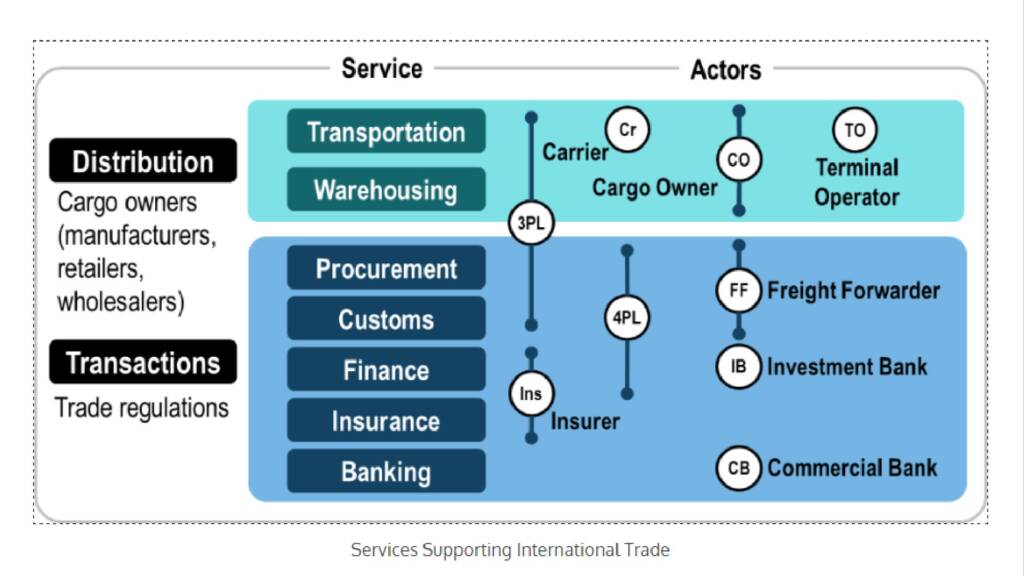Eports and imports require a large number of third-party services providers which facilitate the flow of the International trade.
We have a team of qualified professionals who have decades of expertise with respect to the international trade and its nuances. We strive to make these complexities simpler with our experience and exposure.
What is the spectrum of third-party services in international trade?
The following chart explains the role of a number of third-party services providers in international trade

Image Source: porteconomicsmanagement.org
Our team helps in bringing a lot of value in cutting drown the cost and process time in availing third-party services which in fact helps in improving the overall deal profitability,.

We take pride in helping our trading partners, exporters and importers in focusing upon what matters most to them for their business deal and increase profitability.
All Parties involved in an international Trade
- Exporter: Exporter is a seller or shipper, the exporter is the natural or legal individual or entity that sells to another country.
- Importer: Importer is the buyer, that buys goods, commodities or services from a foreign exporter,
- Freight forwarder: In Physical commodity or goods trading, a freight forwarder plans, coordinates and monitors all the operations for the transport and international freight logistics and shipping.
- Customs Clearing agent: The customs or clearing agent is the authorized person to perform, on behalf of government, the formalities of customs clearance of goods.
- Shipping company: The shipping company is the legal owner who charters a vessel transporting goods and commodities to different international ports.
- Shipping agent: The shipping is the legal representative of the shipping company. He handles various tasks related to the carrying of Trade goods and commodities and related documents.
- Consolidator: The consolidator is an intermediary services provider or agents who sells cubic meters of container load to fill a full container.
- Carrier: The shipping carrier is responsible for transporting the container from a location to the destination.
- Insurance: Insurance companies offer shipping insurance coverages to cover any incidents that may occur during the voyage to avoid losses at both the ends.
- Trade Banks: Banks are responsible for the financial aspect of the international trade. They help in opening the Letter of Credit and accepting shipping documents as per the agreement of the trade.


